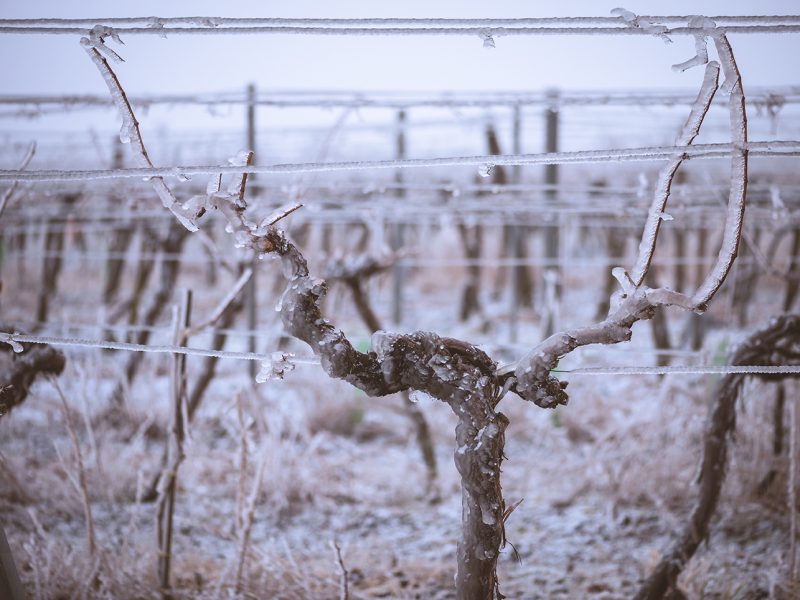Winegrowers across the province welcomed bountiful yields of high-quality fruit in 2022, according to Wine Growers BC in its annual vintage report released this week, but the coming season is likely to see yields significantly below normal.
An extreme cold weather event on December 21-22 saw temperatures in the province’s major wine-growing regions fall below -20°C for a sustained period, with temperatures reaching as low as -30°C in Kelowna and West Kelowna.
“Due to the severity of bud damage caused by the extreme cold event, the 2023 harvest is projected to be significantly reduced, with an estimated … 39% to 56% reduction in grape and wine production,” Wine Growers BC reports.
The estimate is the result of work by Ben-Min Chang of Agriculture and Agri-Foods Canada’s Summerland Research and Development Centre. Chang surveyed 13 vineyards in different areas of the Okanagan Valley and collected buds from 18 different varieties and assessed the level of damage in partnership with wine producers.
The report found that crop losses are most likely in Osoyoos, ranging from 55% to 71% followed by Lake Country and Vernon at 49% to 73%. Anticipated losses in Kelowna and West Kelowna range between 43% and 71% while Oliver checks in at 46% to 67%.
“Together, these regions account for more than 70% of historical wine grape yields,” Wine Growers BC reports.
White varieties are anticipated to be less severely hit while red grape varieties are anticipated to experience the most severe crop losses, led by Malbec at up to 98%, Syrah at nearly 96% and Merlot at close to 76%.
While pruning workshops this winter focused on strategies to support vine recovery, the losses are fuelling calls for changes to regulations governing wine content to help wineries counter the impacts of a more variable climate.
An industry committee is developing recommendations for presentation to the BC Wine Authority, which is charged with enforcing the province’s wine standards.
The recommendations could include flexibility with respect to the proportion of grapes included in wines from an indicated geography, vintage designations and varietal names. Relaxing the requirements would give a winery greater leeway on sourcing grapes in short years, allowing it to maintain production and sales.
In the meantime, Wine Growers BC is working with the BC Ministry of Agriculture and Food to mitigate the impact to industry from the 2022 cold weather event.


 Producers at a loss with elk damages
Producers at a loss with elk damages